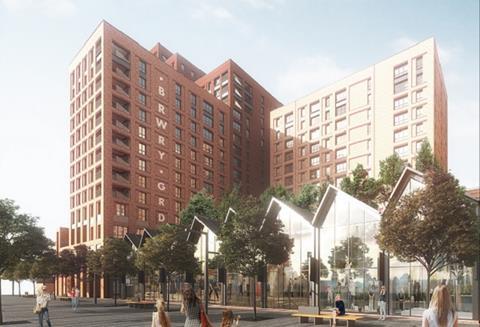Potentially lost alongside the Autumn Budget, which saw the chancellor announce a glut of new government spending measures with his eyes still firmly on Brexit, was the final part of Oliver Letwin’s independent review into build-out rates in Britain.

And it seems that the Tory grandee has left his biggest recommendations until last. The veteran MP recommends that the government introduce a new planning regime that specifically applies to large sites - initially up to over 1,500 units - in areas of high housing demand and encourages more diversity of tenure on these sites.
Under this new planning regime, councils would be allowed to designate areas in their local plans that can be developed only as large single sites, and they would be able to use a compulsorily purchase order on the land at a capped rate of around ten times existing use value.
Developers and local authorities that then seek to develop these large allocated sites have to provide a diversity of offerings in line with the ‘diversification principles’ and Section 106, laid out in the new planning document. In addition, to ensure the new guidelines would be put into practice, Letwin suggests that the government establishes a National Expert Committee to help local authorities with the diversity requirements for large sites and to arbitrate where these requirements cause an appeal or disagreement between the local authority and the developer.
The Letwin Review’s focus on ‘diversification’ is fundamentally correct. On large sites, which historically suffer from slow build out rates, a diversity of offerings in an area of high housing demand will help speed up delivery by incentivising the developers to not partake in “intentional delay” or “land banking”.

Alternative tenures such as build-to-rent and purpose built student accommodation (PBSA) have income-focused models, which creates additional incentives to build-out and fill up developments in order to open income streams.
Diversification would also the social benefits. Pursuing homogeneity of tenure on large sites - especially large-scale regeneration projects - can have terrible effects, uprooting existing communities, stunting the potential for creating a vibrant community and giving rise to vehement opposition from local community groups. If anything, sites of 500 units could benefit from equally a heterogeneous approach to development too.
More broadly, local authorities can look beyond housing need and allocate areas for commercial, retail, leisure or even social uses to help the local economy and the community that relies upon it.
Letwin’s recommendations strike the right balance between economic necessity and social responsibility. With the right incentives put in place from government, and with greater statutory power bestowed to local authorities, sluggish build-out rates can become a thing of the past. All we need to do, as developers, is mix it up.





























No comments yet